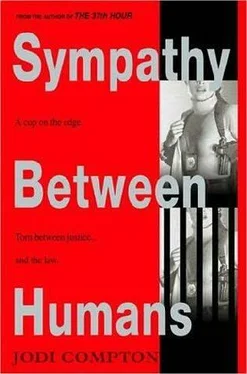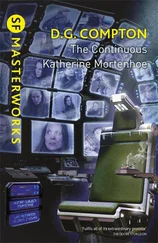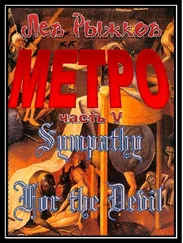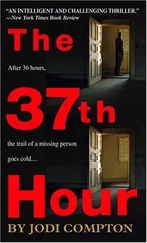Emory University granted Hugh a partial academic scholarship, despite his parents’ comfortable finances. It was at Emory that Hugh Hennessy met the two people who would be his most constant companions. One was J. D. Campion, a part-Lakota literature student from South Dakota. The other was a beautiful German-born folklore and anthropology major, Elisabeth Hannelore Baumann.
The three were inseparable during their first two years at school. After that, Campion and Hennessy dropped out, much to the displeasure of Hennessy’s parents. J. D. and Hugh planned to travel America, like young literary lions of an earlier generation had done.
Literally on the eve of their departure, Hennessy married Elisabeth Baumann. Both were 19, and their haste gave rise to rumors of a pregnancy, but those whisperings eventually proved unfounded. Apparently, the wedding had its roots in an urgency that was emotional, not biological. She stayed in school, a simple silver ring on her finger, her stomach flat. Hennessy embarked on a journey of self-discovery in sweat with Campion.
They refined taconite on the Range. They harvested hard red winter wheat in South Dakota. They worked in the shipyards of Duluth, once an outlaw border town. They traveled south to see the New Orleans where Hennessy’s great-grandparents had arrived in America, and stayed to work on the docks and be arrested in a brawl that cleared out a working-class bar there. They were either gathering fodder for their future writings, if you wanted to be charitable, or creating a legend, if you wanted to be cynical.
The New Orleans mug shots ran along with Healy’s story. Campion, dark and thin, was appropriately resigned and surly in his, but Hennessy was smiling.
Smiling. I couldn’t figure that out for a minute, but then I realized: well-bred, middle-class Hugh Hennessy had been told all his life to smile when he was having his picture taken. For his booking photo, he did it automatically.
Somewhere in that interim period, Hennessy began work on Twilight, the fictionalization of his parents’ middle-class life in Atlanta. In time, he felt strongly enough about its potential that he’d come home to Atlanta to ready it for publication. Elisabeth, who had finished her degree, supported her husband as he finished his novel at white heat, sending it off to agents at age 24. In due time, Twilight was purchased, published, and hailed as a singular achievement.
As friends of Hennessy’s parents recalled (both were dead by the writing of Healy’s piece), the book had a chilling effect between parents and son. That was no surprise. What did seem to surprise Hennessy was the way his book was received in his hometown.
“ Twilight was perceived, or perhaps misperceived, as a sweeping condemnation of the mores and priorities of the New South,” wrote Healy. “Reviews of the book were distinctly cooler in the Southern press. One can extrapolate how it might have been viewed among Hennessy’s associates and neighbors in Atlanta. Taking a no-prophet-is-received-in-his-homeland stance, Hennessy found the most pointedly Northern home he could have adopted: Minnesota.”
Minneapolis was a new chapter in the Hennessys’ life. As money from Twilight began to roll in, Elisabeth quit working to become a graduate student. The couple bought a house on Lake Minnetonka, and Hugh began working on his second book.
Again using fictional characters that clearly sprouted off his family tree, The Channel portrayed people with lives that were “as alternately sunny and stormy as the world of Twilight is airless.” The immigrants Aidan and Maeve Hennessy had several children, and all their stories were touched on, but as a writer, Hugh Hennessy seemed most taken with the lives of his two great-uncles, who were minor figures in the New Orleans underworld of their day. Their finest- or worst- hour came when they were implicated in a daring series of truck-hijackings for which they were never arrested. If Hugh ever questioned the ethics of their lifestyle, or whether they had had alternatives to a life of theft and violence, it wasn’t an issue raised in The Channel. Indulging a writer’s fancy for artifacts from the fictional world, he bought a pair of restored revolvers of the kind his great-uncles had used; they appeared in a photograph of Hugh’s study that accompanied one magazine profile.
The Channel cemented Hugh’s reputation as a writer of merit. It was that rare piece of modern fiction that is both praised by the highest stratum of critics and read on subways and beaches. The Channel went to the top of the bestseller lists and stayed there for weeks.
If you could pick one word to describe the world of the Hennessys back then, fertile would have been a good choice. Their family, their wealth, and their esteem were all growing in the Northern soil of Minnesota. Hugh and Elisabeth were celebrated in their adopted city, and Hugh stressed in interviews that they weren’t going anywhere. This was what he’d always wanted, he said: a little land, roots, and the kind of big family he would have liked to have grown up in.
The “family” part was certainly coming together. Elisabeth was close to delivering her fourth child in five years; she and Hugh already had three-year-old twins and a toddler, Liam. Funds weren’t a problem. If Twilight had brought in respectable money, The Channel brought in a lot more, and Hugh was in demand as a lecturer at Twin Cities schools. He and Elisabeth entertained often; J. D. Campion was a frequent guest at their home. As a poet, he’d been enjoying a lesser success, but his volume of poetry, Turning Shadow, had won awards. It was both literate and in places vividly erotic, and for a while, it was the perfect book to peek sexily out of a college sophomore’s backpack at the coffeehouse. Magazine writers made much of the literary friendship: the rootless, restless poet and the happily married scribe of family and heritage complemented each other in the public eye.
Then, shortly after the birth of Colm Hennessy, the parties stopped. So did the interviews. Rather abruptly, the Hennessys closed their doors to public life.
To the world, it seemed as though the Hennessys had simply become deeply committed to raising a family. But if this were the case, the Hennessys were taking things to extremes. Campion, too, was suddenly excised from their lives. For years, he stayed away from Minnesota.
There were whispers of a falling out between Hugh and J. D., rumors that a longtime rivalry for Elisabeth’s affections had finally boiled over, scalding the friendship beyond repair. There was a one-sentence reference, in Healy’s story, to Campion’s short-lived relationship with Elisabeth’s younger sister, Brigitte, but Healy left it to the reader to draw the inference that Brigitte had been a failed substitute for her older sister in Campion’s affections.
Others suggested the pernicious rivalry was professional, as Campion had never attained the heights his friend had. But the speculation remained speculation. Healy had been unable to reach the often-traveling Campion for an interview, and Hennessy had not cooperated with the story. Neither side of the split was told.
If Hugh wanted privacy, he got it. As years passed without a follow-up to The Channel, the world moved on. Even the Twin Cities media largely forgot about him, until the day it was reported that Elisabeth Hennessy’s lifeless body had been found in the waters of Lake Minnetonka. She had left behind five children, the youngest only eleven months old.
For several years before her death, Elisabeth had been notably reclusive. Her husband taught at local colleges, but Elisabeth stayed at home, rarely going out or seeing friends. Perhaps this was simply consistent with having five children under the age of 10. If something darker, like postpartum depression, lay beneath it, there hadn’t been enough evidence for the papers to even speculate. Coverage focused solely on tragedy striking at one of America ’s most respected writers on family ties, love, and loyalty.
Читать дальше












